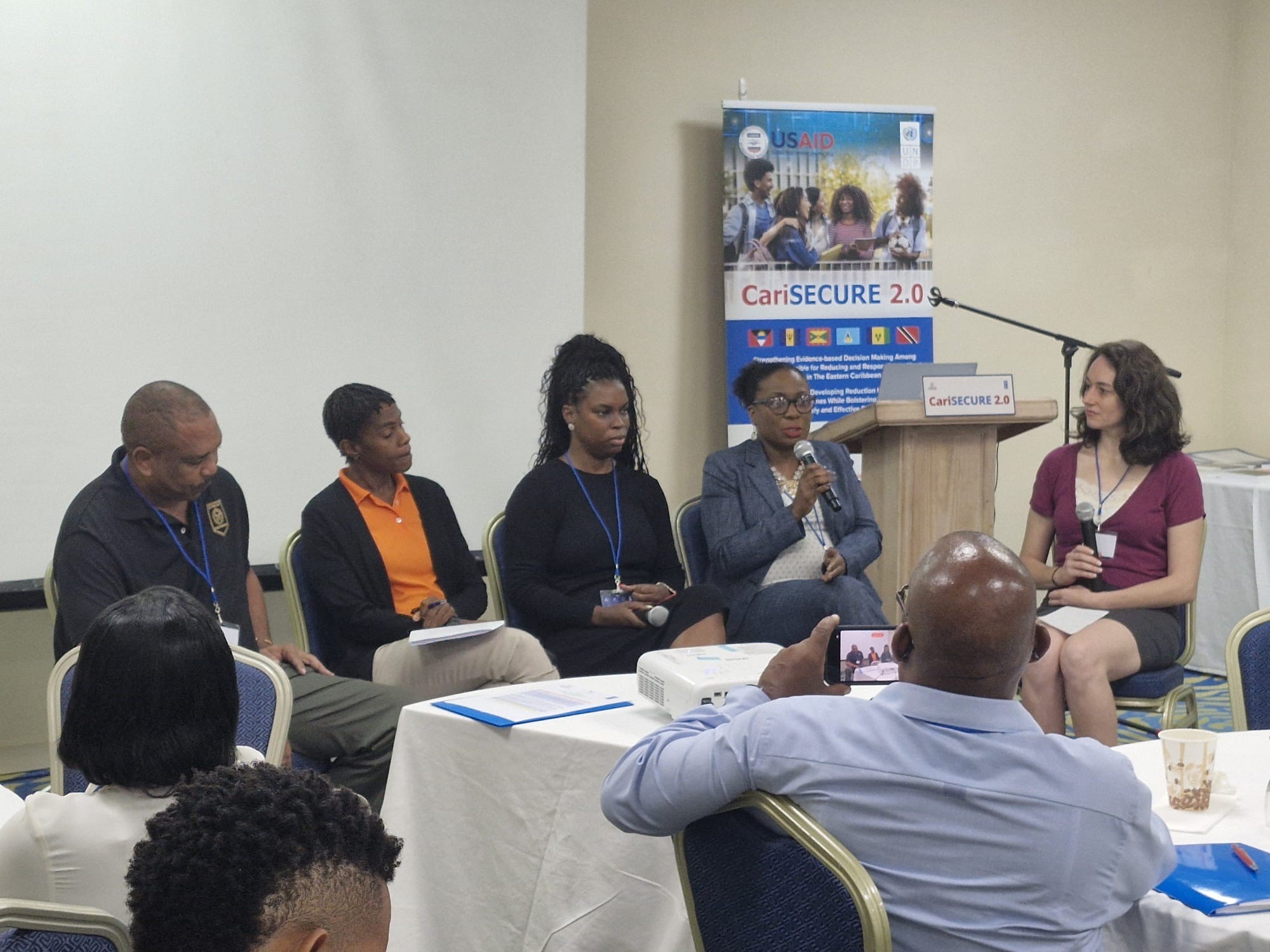Research Team
Crime and Justice Policy Lab, University of Pennsylvania
Project Overview
The Crime and Justice Policy lab is partnering with the United Nations Development Programme (UNDP) to strengthen evidence-based decision-making for citizen security in the Caribbean. Funded by USAID, CJP’s work with regional and national partners of CariSECURE 2.0 in Antigua and Barbuda, Barbados, Grenada, and St. Vincent and the Grenadines is guided by the following key project objectives:
- Assess organizational capacities, management practices, and readiness to change of CariSECURE 2.0 partners responsible for reducing and responding to youth crime.
- Strengthen target agencies’ data collection, management, analysis, and sharing practices in Antigua and Barbuda, Barbados, Grenada, and St. Vincent and the Grenadines.
- Support the launch of national crime observatories to promote community-led and evidence-based crime prevention and reduction efforts.
- Gather data on youth crime victimization and involvement in violence, drugs, and alcohol in Grenada and St. Vincent and the Grenadines to inform the development of national policies.

